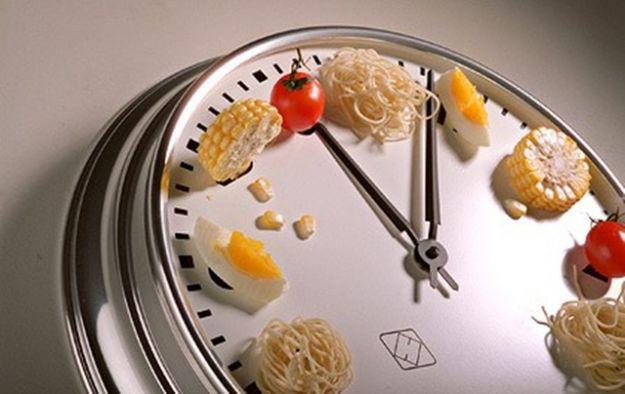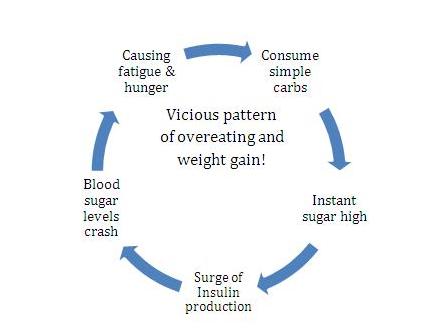[su_heading style=”default” size=”13″ align=”center” margin=”20″]Nutrition Guide – Best Carbohydrates for Weight Loss[/su_heading]
Guide : Best Carbohydrates for Weight Loss

In the last decade, carbohydrates have overtaken fat to get on top of the hit list of many fad diet experts. The anti-fat movement of the 1990s amassed several disappointed consumers who compensated themselves for their ‘no-fat’ sacrifice by unknowingly increasing their daily calorie and carbohydrate intake. The processed food industry with its labels like ‘low-fat’ and ‘no-fat’ continues to befool people into thinking they are eating healthy while what they eat is still loaded with simple sugars, additives, colors and preservatives.
It is no surprise obesity is increasing at an alarming rate all over the world and people are willing to invest any amount of money for a quick fix. But, weight loss and sustaining fitness successfully is primarily about good habits, portion control and eating quality food loaded with optimum nutrition.
Carbohydrates – Quality Matters:
Of all the macro-nutrients, carbohydrates are the MAIN fuel for our nervous system. But, the focus should be on whole foods rather than refined or processed foods. Daily consumption of complex carbohydrates ensures adequate supply of slow release energy throughout the day. Fibrous carbs make meals more satisfying, serve as a high end propellant for staying active, promote a healthy pace of digestion and contribute to emotional well-being.
The catch is to know the difference between good carbs and empty calories loaded bad carbs. Fortunately, the two are easy to distinguish between.
Bad carbs are synonymous with simple carbohydrates or simple sugars that easily get absorbed in the blood stream which is a poor way to fuel the body on a regular basis. The following oversimplified pattern explains why.

As such, the bad carbs to AVOID are candy, soft drinks, biscuits, cookies, potato chips, sugary cereals, jams, jelly, fruit juice, anything with white flour, white bread or white sugar. Food labels such as “enriched” and “Instant” also denote that the item is considerably processed and stripped off its essential nutrients.
The ONLY EXCEPTIONS to simple carbohydrates are fruit and milk. They contain enough nutrition to form a moderate part of a balanced diet.
The Ultimate Weapon to Fight Fat: Fiber
However, the real stars of your dietary regimen should be a healthy balance of starch and fibrous complex carbohydrates which are packed with vitamins, minerals and fiber.
25-30 grams of daily fiber intake available only through plant sources is particularly vital in turning your body into an efficient fat-burning machine. In addition to enabling a sustained, slow release of energy, controlled blood sugar and feeling of fullness, high fiber contributes to a healthy heart and skin. Following are some of the diverse power packed foods of different leagues which should be eaten every day.
1. Sweet Potato: Vegetable Starch
When eaten baked, 100 grams of sweet potato contains 384% of your daily Vitamin-A requirement in only 90 calories! Other than that it offers;
21 grams of carbohydrates
3.3 grams of fiber
2 grams of protein
It also contains Iron, Potassium, Vitamin C, Vitamin B-6 and a little bit of calcium and sodium.
It serves as a sporting side to both veggies and protein during lunch or an early dinner and may serve as a healthy substitute for white bread.
2. Oatmeal: Whole Grain
This is one of the best breakfasts to start your day with and beats any instant cereal in quality.
100 grams of Quaker Oats have;
402 calories,
69 grams of Carbohydrate
10.5 grams of fiber
11.8 grams of protein
8.6 grams of fat (most of which is healthy unsaturated fat)
Apart from being rich in dietary fiber Oats are full of Magnesium and Iron.
A typical daily serving size is usually 35-40 grams (half a cup) best cooked in semi-skimmed milk garnished with nuts or fruit.
3. Broccoli: Fibrous Complex Carbohydrate
This vegetable is known particularly for its cancer fighting and anti aging property.
100 grams of Broccoli has;
Merely 34 calories!
7 grams of Carbohydrate
2.6 grams of Fiber
2.8 grams of Protein
It will cover 148% of your daily Vitamin- C requirement and also offers modest amount of Vitamin A, Calcium, Vitamin B6, Potassium, Magnesium and Iron.
The best part of including broccoli in your meals is that microwaving, steaming or stir frying does cause any significant damage to its compounds. So, you are guaranteed a healthy meal.
4. Cucumber: Fibrous Complex Carbohydrate
Though a widely cultivated plant, cucumbers do not get promoted enough. They are one of the lightest foods in calories but dense in phyto-nutrients that fight age and stress related inflammation in the human body.
100 grams of cucumber contain;
16 calories!
3.6 grams of Carbohydrate
0.5 grams of Fiber
0.6 grams of Protein
It is rich in Vitamin K, molybdenum, phosphorus, Vitamin C, Vitamin A and Magnesium and Potassium.
Best eaten raw, including them in your meals will slow down the digestive process just enough for your body to extract the most benefit of your meal.
5. Kidney Beans: Legume Source
Beans are an excellent vegan choice for high quality virtually fat free protein.
100 grams of boiled kidney beans with salt have;
123 calories
22 grams of Carbohydrate
9 grams of Dietary Fiber
9 grams of Protein
They are also replete with metabolism boosting antioxidants and lean muscle fueling nutrients like Folate, Thiamine, Riboflavin, Iron, Molybdenum, Manganese, Copper, Phosphorus and Magnesium. They are best eaten with whole grains like brown rice make a satiating meal high in fiber.

[su_note note_color=”#b71319″ text_color=”#ffffff” radius=”3″ class=””]Do you like this post ? Sharing is Caring ![/su_note]










 LATINO PARTY MIX
LATINO PARTY MIX  ...
...

